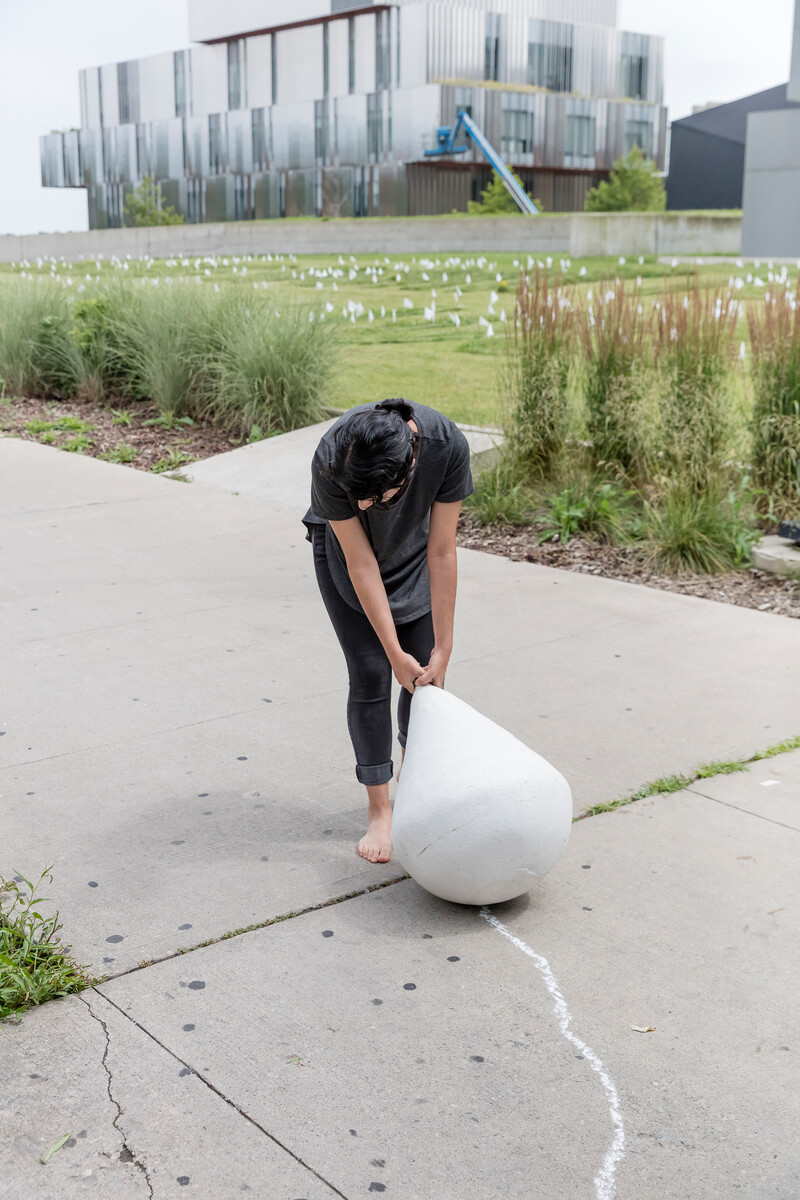
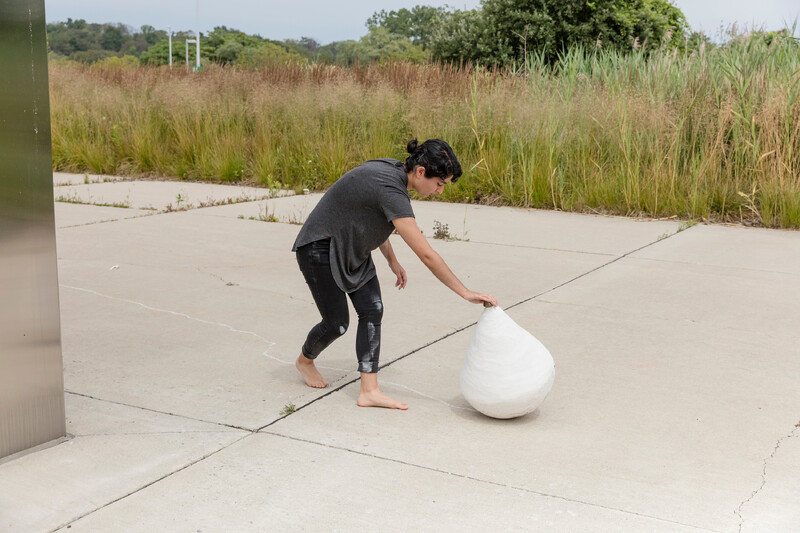
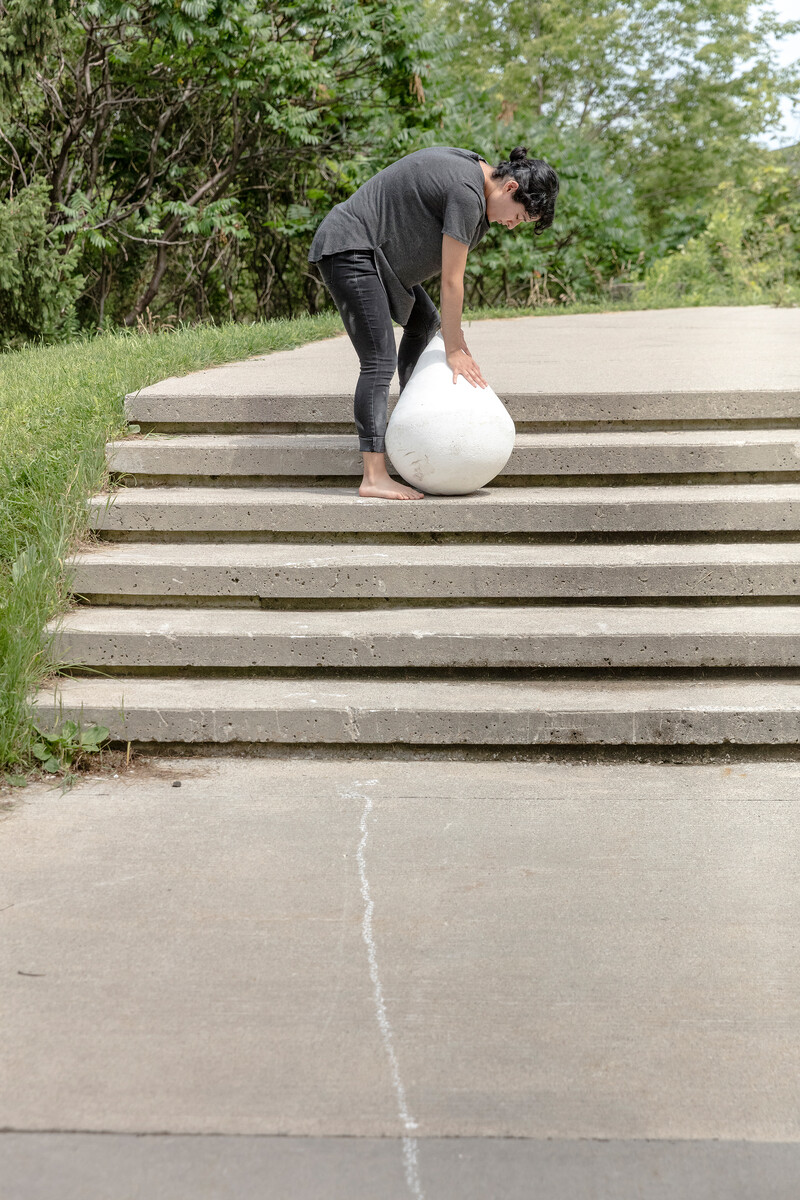
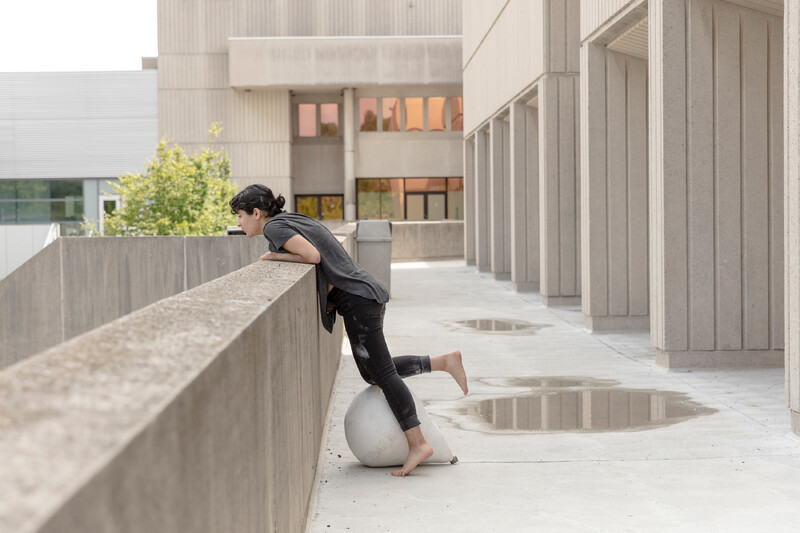

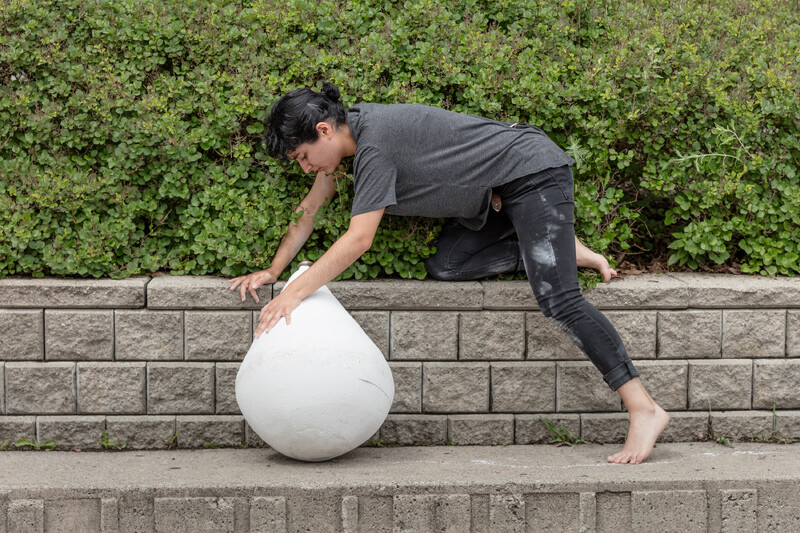
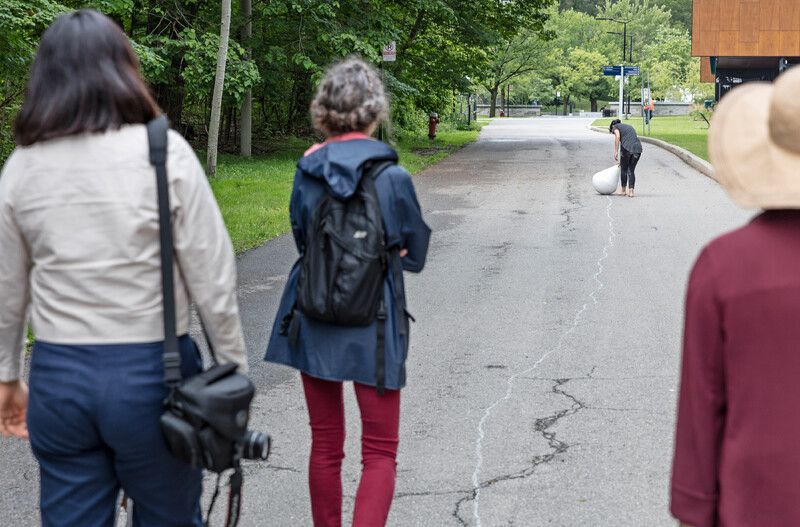
Finding words for the feeling
Abedar Kamgari’s site-specific performance, as part of her ongoing project Finding words for the feeling, navigates the unfamiliar spaces of the campus by tracing the intimacies of human presence woven into the University’s public but often inaccessible sites. In doing so, she explores the nuances of diasporic identity and of her relationship to Canada, both as a settler and as an immigrant. Throughout the performance, Kamgari hauls and heaves a large droplet-shaped plaster mass leaving behind a chalky trail to mark its presence on the land. The plaster mass is equally impacted with scuffs, marks, and dents from the landscape, gradually altering its appearance throughout the excursion. One can feel the excessive hardship involved in the mundane, even unnecessary, act of pushing and dragging a large object, as though to mirror the complexity of being a settler/immigrant in unfamiliar space. Kamgari’s labour-intensive and circuitous trek metaphorically captures the challenge of navigating space as an immigrant—in this case, the space of the university as it relates to the violent history and legacy of settler colonialism in Canada—and exploring the difficulties of belonging. In doing so, she addresses the dualities and contradictions located within immigrant and diaspora identities: to be both western and non-western, foreign and domestic, familiar and unfamiliar, here and there, and so forth. The site-responsive nature and duration of the piece further taps underlines tensions in the nature of performance and identity— does the performance end with the work itself, or does it extend to a conscious, daily assertion of self against the anxiety of placelessness and Otherness?

The Blackwood
University of Toronto Mississauga
3359 Mississauga Road
Mississauga, ON L5L 1C6
[email protected]
(905) 828-3789
The galleries are open. Hours of operation: Monday–Saturday, 12–5pm.
Holiday hours: regular gallery hours are in effect until and including Saturday, December 6. The galleries will then be closed for the holidays, except for regular hours on Saturday, December 13. In 2026, the galleries reopen Monday, January 5.
Facebook | Twitter | Instagram
Sign up to receive our newsletter.
The Blackwood is situated on the Territory of the Mississaugas of the Credit, Seneca, and Huron-Wendat.